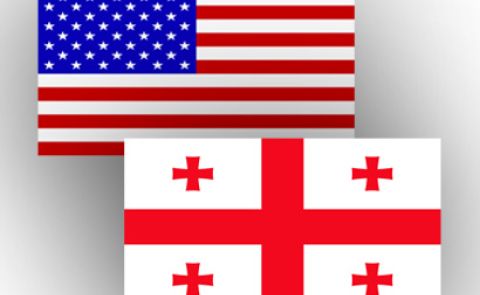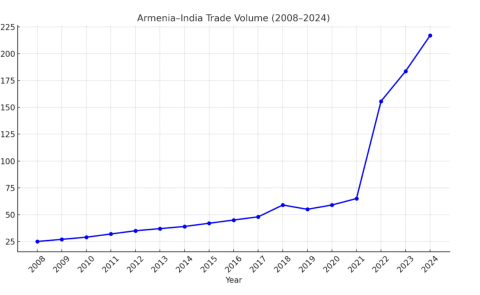
Why did the opposition not succeed in Armenia?

Author: Anzhela Mnatsakanyan is a political analyst focusing on the Eastern Partnership countries, Russia, and the EU.
The announcement of the tripartite ceasefire statement by Armenia, Azerbaijan, and Russia on November 9, 2020, erupted a political crisis in Armenia, with opposition to Prime Minister Nikol Pashinyan demanding his resignation. The crisis peaked on February 25, 2021; the Chief of the General Staff of the Armenian Armed Forces and 40 high-ranking military officers demanded the government's resignation. Nikol Pashinyan responded to the statement by calling it an attempted military coup and called on his allies to gather in the capital Yerevan's central Republic Square. While Pashinyan rallied his supporters in Republic Square, the opposition coalition called the “Homeland Salvation Movement” held a parallel rally in Freedom Square to support the generals' declaration. Finally, on March 28, after months of a domestic political crisis, Nikol Pashinyan announced that he would resign in April, stating that his resignation was to hold snap elections.
For the first time in post-Soviet Armenian history, the outcome of the elections seemed to be an open question. All three previous presidents and the current acting Prime Minister ran for office. The number of participants in the elections was relatively high – four alliances and twenty-three parties. The government officials and the opposition extensively used hate speech during the whole election campaign. They blamed each other for the defeat in the war, betrayal, mismanagement, and bad governance.
On June 21, the Central Electoral Commission confirmed the results: Pashinyan's "Civil Contract Party” received 54% of the vote and won 71 seats, a majority in the 107-seat parliament. The opposition "Armenia Alliance” finished second with 29 seats, while the "With Honor Alliance” won 7 seats. No other party or alliance surpassed the electoral threshold required to win a seat in parliament. The OSCE assessed the election as "marred by increasingly inflammatory rhetoric but positive overall." However, on January 31, 2022, the International Republican Institute published Armenia's public opinion survey results. According to the Survey, 50% of the respondents expressed their opinion as “very dissatisfied" with the work of the National Assembly, and 30% were very dissatisfied with the work of the Prime Minister's Office.
It is essential to highlight that any compromise concerning Nagorno-Karabakh by the political parties would be equal to political suicide in the past. However, the "Civil Contract Party,” which de-facto lost the war, managed to be reelected. This article will delve into several reasons why did the opposition not succeed in Armenia.
Firstly, Armenia has faced external security and defense threats before, during, and after the elections. Armenian society has not recovered since the war. During and after the election campaign, politicians manipulated attitudes on war to legitimize, promote, or discredit each other. The false narratives, targeted disinformation campaigns, continuous political and public discourses that present every country's development as a threat to a new war keep Armenian society in a state of constant emotional terror. In this reality, on the one hand, the opposition has repeatedly voiced that it will change the current situation in Nagorno-Karabakh, which the public accepted as a threat of a new war. Nevertheless, on the other hand, the ruling party quickly ramped up its role as a peacekeeper, and people voted for the "peace."
According to the second President of Armenia and head of the "Armenia Alliance”: Robert Kocharyan, the ruling party,was threatening the public that if the "Armenia Alliance” won the election, it would lead to a new war.
Tigran Abrahamyan, a member of the National Assembly from "I Have Honor Alliance,” thinks that the opposition’s main weakness was that it did not manage to ensure proper communication with the society. In the conditions running up to the election, it was not possible to properly present to the public the damage which the current power will cause to the country if they continue to rule: for instance, the threat of a new war, and the lack of stability. Mr. Abrahamyan states that the real opposition did not have the opportunity to present its fundamental mission. In the current difficult times, the opposition does not give the complete roadmap to allow the country to emerge from a deep crisis.
Secondly, the opposition was not united. President of the Youth Union of the "Prosperous Armenia Party,” Ashot Andreasyan states that the opposition has never been united against the current regime, as the opposition consists of different political units, which cannot share many issues. According to Ani Samsonyan, a member of the National Assembly of the Republic of Armenia Seventh Convocation from the "Bright Armenia Party”, the opposition could not win the 2021 snap parliamentary elections, as the political field was very polarised.
The third President of Armenia and the leader of "I Have Honor Alliance,” Serzh Sargsyan, emphasised the dispute between the opposition while saying that he considered the election wrong due to its timing. Notwithstanding, as some oppositional leaders decided to go for the election, his Party was forced to participate. Later, Serzh Sargsyan stated that his Party warned that the election could not solve the crisis in Armenia. We can assume that based on this dispute, Serzh Sargsyan and Robert Kocharyan participated in the election separately. Subsequent disputes between the policies of Serzh Sargsyan and Robert Kocharyan appeared after the election, when Sargsyan said if the main opposition forces of Armenia set only one goal - a change of government and not gaining the power, it would be possible to organize a change of power in Armenia. In contrast, Robert Kocharyan claims that "all the parties that participated in the elections aspired to power. Otherwise, why did they participate in the elections?"
The extra-parliamentary opposition is not united either: one part prefers to maintain good relations with the government; the other part has found itself in the opposite camp. Moreover, those contouring the current government failed to combine their actions. For instance, the "Liberation Movement” decided to continue to organize rallies, while the "5165 Movement” decided to hold private meetings instead. Besides that, the extra-parliamentary opposition has no resources to present itself properly.
Ms. Samsonyan emphasized the problems which the extra-parliamentary opposition is facing in Armenia while bringing the example of her political party. "We, [the] "Bright Armenia Party,” preached solidarity - unity for the sake of Armenia, but for the people, it was more utopian in nature, it was preferable to ‘punish’ either Kocharyan or Pashinyan."
Thirdly, the parliamentary opposition has demonstrated a repeated propensity to shoot themselves in the foot by rejecting all political dialogue and boycotting the sessions of the National Assembly. Due to it, the ruling party has gained room to maneuver and has disavowed any responsibility, as is presenting any political failure because of the actions of the opposition.
According to Ani Samsonyan, "the parliamentary opposition has exhausted all its capabilities and cannot participate effectively in the political process. From the beginning, it set the highest bar of aggression by rejecting all political dialogue opportunities, leading to stagnation. Moreover, the parliamentary opposition does not have any balancing or restraining mechanisms because it is exhausted."
Furthermore, almost every suggestion made by parliamentary opposition meets the vehement denial of the "Civil Contract Party.” As the ruling party, it is the majority in Parliament, and they can easily pass any decisions without the opposition's approval. In response, the parliamentary opposition is boycotting the sessions of the National Assembly. Both the ruling party and the parliamentary opposition keep insulting each other, blaming each other in the defeat of the war, and using personal information to discredit each other. From time to time, verbal insults lead to physical fights in National Assembly. This atmosphere of hostility and disrespect excludes any possible political dialogue between parties, which created a crisis in the National Assembly. For example, the crisis in the Standing Committee on Defense and Security. On August 12, 2021, Andranik Kocharyan was elected as a Chairman of the Armenian National Assembly's Standing Committee on Defense and Security. On August 24, 2021, the "Armenia Faction” proposed Artur Ghazinyan for candidacy as a Deputy Chairman of the Committee, which was rejected by deputies from the "Civil Contract Party”. Vahagn Aleksanyan from the "Civil Contract Party” explained his decision by pointing out that Artur Ghazinyan did not serve in the army. Another deputy from the "Civil Contract" Party, Vilen Gabrielyan voted against Artur Ghazinyan because since November 9, 2020, Ghazinyan has been personally insulting him and his colleagues. After that, the opposition nominated MP Artur Ghazinyan as Deputy Chairman fourteen times, but the "Civil Contract Party” keeps voting against Ghazinyan, in response to which the opposition is boycotting the committee meetings.
Fourthly, the atmosphere during the election campaign further deepened the polarization in society and undermined the prospect of restoring solidarity in the country. As a result, Armenian society is ultimately separated into two homogeneous and antagonistic groups: "the white and the black" or "the previous and the present." Whereas the ruling party and its supporters are the "whites" and "presents," the opposition and their supporters are deemed as the "blacks" and "previous." This categorization of Armenian society started in 2018 when the "Velvet Revolution" led by Nikol Pashinyan was followed by categorizing various factions of the society as "the white and the black" by then the ruling “My Step” parliamentary majority. The opposition, instead of countering these discourses, developed it into "the previous and the present" discourse, which increased societal polarization. According to Ashot Andreasyan, the ruling party is sowing false propagandic hatred towards a large segment of the people towards the former government and everyone connected with them.
Lastly, Mr. Andreasyan believes that pressures from foreign actors are also an active reason why the opposition in Armenia does not have visible success. Even though there is no objective evidence about the external interference in the snap elections in Armenia in 2021, we can assume that Nikol Pashinyan, as a leader of Armenia, is preferable for the West and acceptable for Russia. On the one hand, Nikol Pashinyan is a politician who demonstrated extreme anti-Russian rhetoric. On the other hand, a trilateral statement by Armenia, Azerbaijan, and Russia, doubled the Russian military presence in the region and Armenian dependence on Russia.
The current situation in the National Assembly of Armenia provides vivid illustrations of how the approaches adopted by the opposition ensure the longevity of the ruling party. Therefore, if the opposition aims to change the power in Armenia, it urgently needs to overview its policy, especially the boycotting of sessions in committees in the National Assembly, like in the case of the "Inquiry Committee for Studying the Circumstances of the Hostilities Unleashed on September 27, 2020."
See Also


Armenia and India: Building New Bridges in Trade and Strategy

Between Tehran and Tel Aviv: Azerbaijan’s Neutrality Dilemma Amid Rising U.S.-Israel Tensions with Iran

From Neorealism to Neoliberalism: Armenia’s Strategic Pivot in Foreign Policy After the Nagorno-Karabakh Conflict

Georgia and Russia: New Turn in Bilateral Relations

